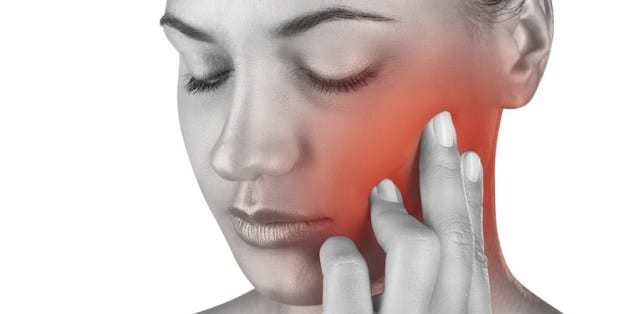
15 Aug Should I See a Dentist for TMJ Pain?
Temporomandibular. Yeah, that word is a mouthful to say. Actually, it is probably more appropriate to say it’s a jawful to say. Wait, is jawful a word? Tell you what, we’ll just stick to providing you with useful dental health information instead of worrying too much about etymology. For this month’s blog, we’ll discuss temporomandibular joint pain and how to mitigate it by its more familiar name: TMJ.
Your TMJ is what essentially connects your jaw to your skull. Think of it like a hinge on each side of your skull that has components (muscles, cartilage, and nerves) that allow you to move your jaw up, down, and around in ways that help with speaking, chewing food, or even yawning. When a person develops a TMJ disorder, symptoms can appear quite abruptly and often include pain and discomfort in the form of headaches, joint inflammation, earaches, and even lockjaw. Although TMJ symptoms can come on quite suddenly and be very painful, they can usually be treated easily and with minimal treatment. Abating the symptoms of TMJ starts with a proper diagnosis.
Fortunately, you can visit your trusted and experienced dental specialists here at McIlwain Dental for specialized treatment for TMJ disorders.
Most TMJ flare-ups are not long term and the side effects do not usually create chronic problems for those suffering. Depending on the severity of your pain and discomfort, we can offer you a wide variety of treatment options ranging from simple physical therapies and mild medication recommendations to other more extensive treatment options. We even offer Botox injections that can help relieve your TMJ pain. There is no reason to live with pain associated with TMJ. We are here to help you with the answers to your questions about TMJ or any other dental or oral health questions.


